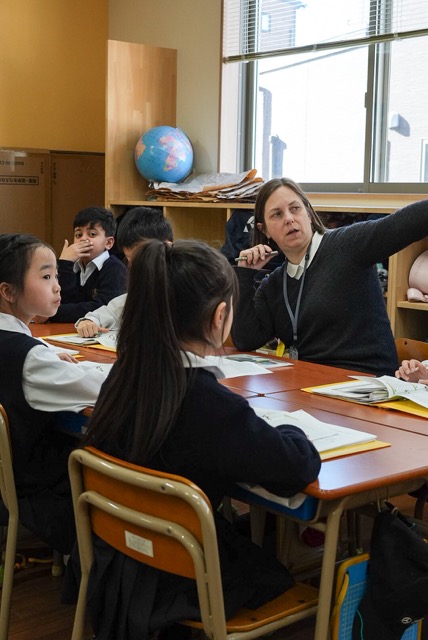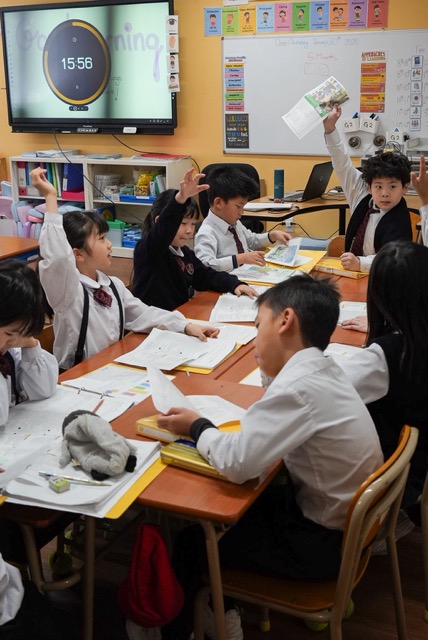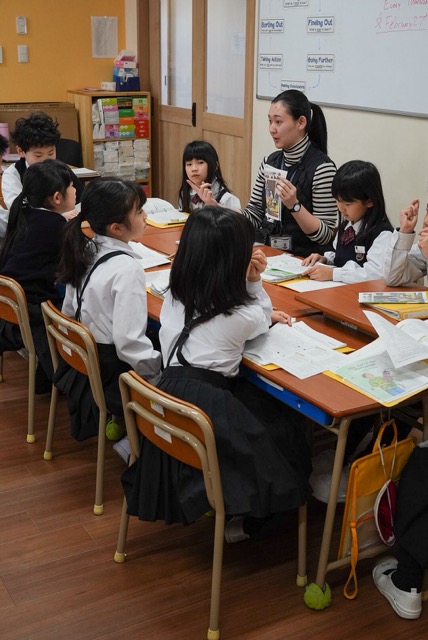2年生の英語のクラスでは、5つの楽しいワークステーションを設置し、さまざまな方法で学べるようにしています!
教師主導のワークステーション
2つのワークステーションでは、教師と一緒に読む、書く、または読解に取り組みます。ここでは、生徒が個別のサポートや指導を受けられます。
自主学習ワークステーション
他の3つのワークステーションでは、生徒が自分で取り組める活動を用意しています。
- ライティングステーション: グループで読んだ本に関連したライティング課題に取り組み、読書と文章を書くことを結びつけます。
- アートアクティビティ: 小さなアートプロジェクトを通じて、手先の器用さや創造力を育みます。
- 読書コーナー: 居心地の良い読書スペースで、楽しみながら本を読んだり、自分の読書レベルに合った本を選んだりできます。
構造化されたローテーション
生徒は20分ごとにステーションを移動し、新鮮でワクワクする学びの時間を過ごします!
このワークステーションモデルは、読書とライティングへの興味を育みながら、楽しくインタラクティブな学習を提供します。2年生の生徒たちとこの学びの旅を共有できることは、いつも素晴らしい体験です!
Grade 2: Engaging Learning Through Workstations in Language Arts
In Grade 2 Language Arts class, they have set up five fun workstations to help students learn in different ways!
Teacher-Led Workstations
Two of the workstations focus on reading, writing, or comprehension with a teacher, where students receive personalized help and guidance.
Self-Directed Learning Stations
The other three workstations encourage students to work independently:
- Writing Station: Here, students complete a writing task related to their group reading book, connecting what they read with their writing.
- Art Activity: At this station, students engage in a small art project that helps develop their fine motor skills.
- Pleasure Reading: In our cozy book corner, students can read for enjoyment or choose books that match their reading level.
Structured Rotations
Students rotate through the stations every 20 minutes, keeping things fresh and exciting!
The workstation model promotes a love for reading and writing while making learning enjoyable and interactive. Always a thrill to share this journey with the Grade 2 students!




